
|
With Qingyunji ...
Fanjing Mountain, located in Tongren City, Guizhou Province, is a stunning natural and cultural landmark known for its unique landscapes, biodiversity, and spiritual significance. Here's a detailed overview of Fanjing Mountain:
### Location and Overview
- **Location**: Fanjing Mountain is situated in the Wuling Mountain range in Tongren City, northeastern Guizhou Province, China.
- **Elevation**: The highest peak of Fanjing Mountain reaches an elevation of 2,570 meters (8,430 feet) above sea level.
- **UNESCO World Heritage Site**: In 2018, Fanjing Mountain was designated a UNESCO World Heritage Site due to its rich biodiversity and unique geological features.
### Natural Beauty and Biodiversity
1. **Unique Geological Formations**: Fanjing Mountain is characterized by its distinctive rock formations, including the Red Cloud Golden Summit (HongYun JinDing), Mushroom Stone, and Old Golden Summit (LaoJinDing). These formations offer breathtaking views and are popular among photographers and nature enthusiasts.
2. **Biodiversity Hotspot**: The mountain is a biodiversity hotspot, home to numerous rare and endemic species. The area is particularly noted for its diverse plant life, including ancient ginkgo trees, fir forests, and a variety of medicinal herbs.
3. **Endangered Species**: Fanjing Mountain provides habitat for several endangered animal species, such as the Guizhou snub-nosed monkey (Rhinopithecus brelichi), Chinese giant salamander, and various rare birds and insects.
### Spiritual and Cultural Significance
1. **Buddhist Heritage**: Fanjing Mountain is one of the sacred Buddhist mountains in China. It is considered a place of enlightenment and has a long history of Buddhist worship. The mountain is associated with Maitreya Buddha (the future Buddha).
2. **Temples and Monasteries**: There are several ancient temples and monasteries on the mountain, including the Shizhong Temple and the Cheng’en Temple. These religious sites attract pilgrims and tourists alike, offering a peaceful and spiritual retreat.
3. **Pilgrimage Destination**: The mountain's spiritual significance makes it a popular pilgrimage destination for Buddhists, especially during religious festivals and important Buddhist dates.
### Tourist Attractions and Activities
1. **Hiking and Trekking**: Fanjing Mountain offers numerous hiking and trekking trails that cater to various levels of difficulty. The trails provide stunning views of the natural scenery and access to the mountain’s unique rock formations and temples.
2. **Cable Cars**: For those who prefer a less strenuous visit, cable cars are available to take visitors up to the scenic areas and major viewpoints, offering a comfortable and scenic ride.
3. **Panoramic Views**: The Golden Summit, one of the most famous peaks, offers panoramic views of the surrounding mountains and valleys. The sight of the sunrise and sunset from this vantage point is particularly spectacular.
4. **Photography**: The unique landscapes, diverse flora and fauna, and ancient temples make Fanjing Mountain a paradise for photographers.
### Conservation Efforts
1. **Protected Area**: Fanjing Mountain is part of a protected nature reserve, which helps to preserve its unique ecosystems and biodiversity.
2. **Sustainable Tourism**: Efforts are being made to promote sustainable tourism practices that minimize the impact on the natural environment and local communities while enhancing the visitor experience.
### Visitor Information
1. **Best Time to Visit**: The best time to visit Fanjing Mountain is during the spring (April to May) and autumn (September to October) when the weather is mild, and the natural scenery is at its most vibrant.
2. **Accessibility**: Fanjing Mountain can be accessed via Tongren, which is connected to major cities in China by train and air. From Tongren, visitors can take buses or taxis to the mountain’s entrance.
3. **Accommodation**: There are various accommodation options available, ranging from hotels in Tongren to guesthouses and inns near the mountain.
### Conclusion
Fanjing Mountain in Guizhou is a place of extraordinary natural beauty and cultural significance. With its unique geological formations, rich biodiversity, and profound spiritual heritage, it offers a diverse and enriching experience for nature lovers, hikers, pilgrims, and tourists. The mountain’s combination of stunning landscapes, rare wildlife, and ancient temples makes it a must-visit destination in China.
|

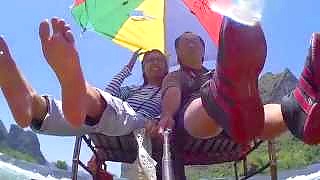



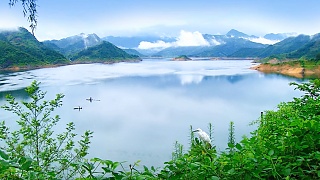
 Something different – relaxing chill-out jazz
Something different – relaxing chill-out jazz
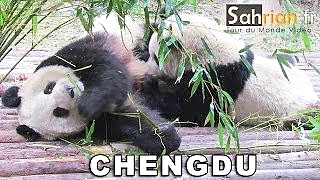



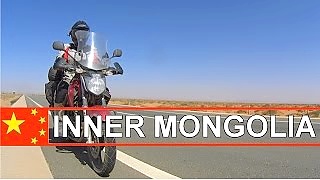




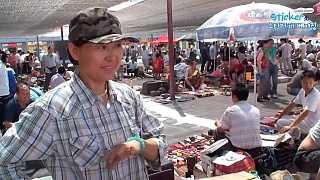




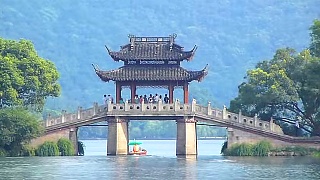
![PinYin - English : pronunciation. ~ is used where there are two sounds in one syllable. Ou[ch] means use the first sound of the word `ouch`; same sound as ow[l]. *** Greetings Nǐ Hǎo - Hello / Hi (literally, you good?) : nee how Zài Jiàn - Goodbye / bye : z~eye jee~ann HuānYíng (GuāngLín) - Welcome ! (You`ll often hear this when enter a restaurant) DaJia Hao ! - Hello everybody ! *** Introductions Nǐ - you / your : nee Wǒ - I / my : woh What is your name? - Nǐ jiào shénme míngzì? : Nee j~ou[ch] shen mer ming zuh? My name is ... - Wǒ de míngzì shì ... : Woh der ming zuh sh ... *** XièXiè - : Thanks : shee~air shee~air (second is a little softer/quieter) XièXiè Nǐ ! - Thank you! : shee~air shee~air nee! *** DuìBuQǐ - Excuse me / sorry : der boo chee BúKèQì - No problem / you`re welcome : boo ker chee Mei guan xi - No problem / you`re welcome : may goo~ann shee Qǐng - Please : ching Mei / MeiHǎo - Beautiful : may / may how *** Interations DuWei - That`s right : doo~way (quickly, and often said twice) Yes and no have no direct translations in Chinese, but the following will be fine is answer to common questions, although they are more like `to be` and `not to be` if translated literally; however, these are real colloquial uses. Bú shì - no : boo shh Bú shì can also be used in reply to `Thank you !` with the meaning `you`re welcome` / `no need to say` / `it`s nothing` Shì de - yes : shh der E. g. LàJiāo ? - lah jee~ou[ch] (chillies ?) : Shì de / Bú shì *** Wǒ - I / me : woh Nǐ - You : nee Tā - He / she : tah *** Shopping and restaurants Wǒ Yào - I want / would like I would like one of these : Wǒ yào Yī ge Zhè ge (woh yow ee guh jay guh) *** ZhèGe - This : jay guh NàGe - That : nay guh *** Yī Ge - One (of) : ee guh Lian Ge - Two (of) : lee~ann guh (Two as a simple number is Er, pronounced `are`) Sān Ge - Three (of) : san guh *** Duō Shǎo Qián? - How much? (price) : doo~or sh~ow[l] chee~ann? Zhège duōshǎo qián? - How much is this? : jay guh Nàgè duōshǎo qián? - How much is that? : nay guh Tài Guì Le! - too expensive! : tie gwee ler! *** nǐhǎo ma? - How are you? : nee how mar ? Hǎo De - ok : how der Hěn Hǎo - Good : hen how Bù Hǎo - Not good : boo how *** ShénMe? - When? : shen mer NǎLi? - Where : nah lee? Nǎr - There (gesturing) : nah Qĭng wèn - Excuse me (before asking a stranger a question) : ching wen Qĭng wèn, weì shēng jiān (zài) nă lĭ? - Where is the restroom? : Ching wen. Way sheng jee~ann z~eye (nah) lee? Qĭng wèn, dìtiě zhàn (zài) nǎ lǐ? - Where is the metro station? : Ching wen, dee tee~air z~eye (nah) lee? You might hear zai nar in norther China (e. g. BeiJing) *** 小 Xiǎo - Small : sh~ow[l] 大 Dà - Big : dah Tai - Too : tie *** Bin De - Ice-cold : bin der Lian De - Cold : lee~ann der Rè de - Hot : rer der Rè chá - hot tea : rer char Bīng píjiǔ - Cold beer : bing pee jee~oh *** La - Spicy : lah Bu La - not spicy : boo lah Xiao La - a little spicy : shee~ow[l] lah Da La - Very spicy : dah lah Tai La! - too spicy! : tie lah! *** Noodles - Miàn : mee~ann Dumplings - JiǎoZi : jee~ow[l] zuh Rice - MiFàn / Fàn : mee fan / fan Eggs - JīDàn : jee dan Beef - NiúRòu 牛肉 : nee~you row Lamb - YángRòu 羊肉 : yang row Chicken - JīRòu 鸡肉 : jee row Pork - ZhūRòu 猪肉 : joo row Fish - YúRòu 鱼肉 : yoo row Tofu - DòuFu 豆腐 : doh foo (See BeijingBuzzz`s food cheat sheet for much more) (Wo) Chī bǎole! - (I`m) full! : Woh ch b~ou[ch] ler! (Ni) Chī bǎole ma? - (Are you) full? : (Nee) ch b~ou[ch] ler maa? Ma is appended to change a statement into a question. *** ZhōngGuó - China : jong goo~woh YīngGuó - England : ying goo~woh MěiGuó - America : may goo~woh ZhōngWén - Chinese nationality : jong ren YīngWén - English nationality : ying ren *** Hótel - Hotel FànDiàn - Hotel / Restaurant : fan dee~ann Wǒ Bù ZhīDào - I don`t know : woh boo juh~dow Tīng Bù Dǒng - I don`t understand : ting boo dong ZhèGe Duōshǎo Qián? / DuōShǎo Qián? - How much is this? : doo~or sh~ow[l} chee~ann? Tài guìle ! - Too expensive ! : tie-gwee lah ! Wo Yao ... - I would like ... : woh yow ... Wǒ Yào ZhèGe - I want this one : woh yow jay~guh *** 5 yuan (kwai) / 2 pieces (items) 5元 / 2个 or 5元 2个 8 折 (bā zhé), which directly translates as `8 discount`. This means that the discounted price is 80% of the original price (20% off). 人 Rén - Person : ren 5元 / 2人 - 5 yuan for 2 people *** For toilet doors / WCs : 男 - Man 女 - Woman *** BúShì - No : boo shh ShìDe - Yes : Shh der Hǎo de - Okay : how der MéiYǒu - none / out of stock : may~oh *** Wǒ ài ... - I love ... : woh eye ... - I love this! : woh eye jay-guh! Wǒ ài ZhōngGuó - I love China : woh eye jong goo~woh *** Hǎo Chī - Delicious (literally good eat) : how ch Bú Hǎo Chī - Not tasty : boo how ch One can think of `Bú` as meaning `not` *** Wǒ Bù LiǎoJiě - I don`t understand : woh boo lee~ow[l]~jee~air *** Chi - eat : ch Wǒ Xiǎng ... - I would like ... : woh shee~ang ... Wǒ Xiǎng Chī ... - I would like to eat ... : woh she~ang ch ... *** Directions Bei - North : bay Nan - South : nan Xi - West : shee Dong - East : dong *** DìTiě - Subway train : dee tee~air Dìtiě nali ma? - Where is the subway? : dee tee~air nah~lee ma Zhan - Train station : zahn Men - gate : men Yuan / kwai - rmb (currency) : yoo~ann / kw~eye (more common) Gong yuan - Park : gong yoo~ann *** KāFēi - Coffee : kah fay Chá - Tea : chah kěLè - Cola : ker ler PiJiou - Beer : pee jee~oh Shui - Water : shway Wo yao liang ge pijiou liande - I would like two cold beers : woh yow[l] lee~ann guh pee jee~oh lee~ann der *** Jia Yo! - Let`s go! / Go! (encouraging) : jee~ah yoh! Wǒ Bù Shuō Hànyǔ / ZhōngWén - I don`t speak Chinese (huh?!) Or simply Bù ZhōngWén : boo jong wen *** Numbers Numbers are easy (there are finger position numbers too, but that`s not so easy) : 1 - Yī : ee 2 - Èr : are 3 - Sān : san 4 - Sì : si (the sound is the first half of `soot`) (short sound) 5 - Wǔ : woo~oh 6 - Liù : lee~oo 7 - Qī : chee 8 - Bā : bah 9 - Jiǔ : jee~oo 10 - Shí : shhh (longer sound) Example of 11 - 99 : 73 - Qi Shí Sān (7x10) + 3 : chee shhh san (7 10 3) 70 - Qi Shí (7x10) : chee shhh (7 10) 100 - Bǎi : buy Example of 101 - 999 : 357 - Sān Bǎi Wǔ Shí Qī (3x100 + 5x10 + 7) : san buy woo~oh shhh chee (3 100 5 10 7) 300 - Sān Bǎi (3x100) : san buy (3 100) One small complication - two (of) - rather than the number two) is liǎng ge : lee~ang ger *** Cheers! - GānBēi! : gan bey! Simple Chinese language phrases to enhance your China trip (pinyin and pronunciation)](https://www.beijingbuzzz.com/choral3.jpg)
